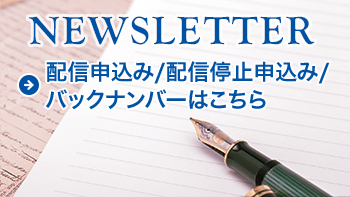

The Legal 500 Country Comparative Guides 2024 - Japan BRIBERY & CORRUPTION

1 What is the legal framework (legislation/regulations) governing bribery and corruption in your jurisdiction?
2 Which authorities have jurisdiction to investigate and prosecute bribery and corruption in your jurisdiction?
3 How is 'bribery' or 'corruption' (or any equivalent) defined?
4 Does the law distinguish between bribery of a public official and bribery of private persons? If so, how is 'public official' defined? Is a distinction made between a public official and a foreign public official? Are there different definitions for bribery of a public official and bribery of a private person?
5 Who may be held liable for bribery? Only individuals, or also corporate entities?
6 What are the civil consequences of bribery and corruption offences in your jurisdiction?
7 What are the criminal consequences of bribery and corruption offences in your jurisdiction?
8 Are mechanisms such as Deferred Prosecution Agreements (DPAs) available for bribery and corruption offences in your jurisdiction?
9 Does the law place any restrictions on hospitality, travel and entertainment expenses? Are there specific regulations restricting such expenses for foreign public officials? Are there specific monetary limits?
10 Are political contributions regulated? If so, please provide details.
11 Are facilitation payments regulated? If not, what is the general approach to such payments?
12 Are there any defences available to the bribery and corruption offences in your jurisdiction?
13 Are compliance programs a mitigating factor to reduce/eliminate liability for bribery offences in your jurisdiction?
14 Has the government published any guidance advising how to comply with anti-corruption and bribery laws in your jurisdiction?
15 Does the law in your jurisdiction provide protection to whistle-blowers? Do the authorities in your jurisdiction offer any incentives or rewards to whistle-blowers?
16 How common are government authority investigations into allegations of bribery? How effective are they in leading to prosecutions of individuals and corporates?
17 What are the recent and emerging trends in investigations and enforcement in your jurisdiction?
18 Is there a process of judicial review for challenging government authority action and decisions? If so, please describe key features of this process and remedy.
19 Have there been any significant developments or reforms in this area in your jurisdiction over the past 12 months?
20 Are there any planned or potential developments or reforms of bribery and anti-corruption laws in your jurisdiction?
21 To which international anti-corruption conventions is your country party?
22 Do you have a concept of legal privilege in your jurisdiction which applies to lawyer-led investigations? If so, please provide details on the extent of that protection. Does it cover internal investigations carried out by in-house counsel?
23 How much importance does your government place on tackling bribery and corruption? How do you think your jurisdiction's approach to anti-bribery and corruption compares on an international scale?
24 Generally how serious are organisations in your country about preventing bribery and corruption?
25 What are the biggest challenges enforcement agencies/regulators face when investigating and prosecuting cases of bribery and corruption in your jurisdiction? How have they sought to tackle these challenges?
26 What are the biggest challenges businesses face when investigating bribery and corruption issues?
27 How have authorities in your jurisdiction sought to address the challenges presented by the significant increase of electronic data in either investigations or prosecutions into bribery and corruption offences?
28 What do you consider will be the most significant bribery and corruption-related challenges posed to businesses in your jurisdiction over the next 18 months? 29 How would you improve the legal framework and process for preventing, investigating and prosecuting cases of bribery and corruption?
著者等:
大橋 君平
小野 洋一郎
書籍名・掲載誌:The Legal 500 Comparative Guides
出版社等:Legalease Ltd.
取扱分野:
企業刑事事件
出版日:
2024年06月11日
大橋 君平 に関する他の執筆情報
- 2025.10.20
- 〔鼎談〕現役裁判官と語る、令状実務の現状と展望(3)勾留延長、勾留理由開示、保釈
- 2025.07.20
- 〔鼎談〕現役裁判官と語る、令状実務の現状と展望(2)勾留
- 2025.04.20
- 〔鼎談〕現役裁判官と語る、令状実務の現状と展望(1)逮捕
- 2024.10.01
- サイバー保険の活用法
- 2024.08.20
- 裁判員裁判事件の控訴審での対応─弁護の立場から─
- 2023.12.25
- 企業活動に関連する刑事法の捉え方
- 2023.04.20
- 一審弁護活動が不十分な場合の控訴審における救済
- 2022.07.20
- 元裁判官に聞く刑事補償・費用補償の判断基準
- 2022.07.20
- 刑事補償請求・費用補償請求の基礎
- 2022.07.01
- サイバーセキュリティとコインハイブ事件最高裁判決
- 2019.03
- 捜査・公判協力型協議・合意制度の運用と弁護実践(後編)
- 2019.01
- 捜査・公判協力型協議・合意制度の運用と弁護実践(前編)
- 2018.10.20
- アメリカン・プラクティス① ブロンクス・ディフェンダーズの弁護実践
- 2018.07.20
- アメリカ刑事訴訟での被告人公判供述の実際
- 2016.03
- 刑事上訴審における弁護活動
- 2014.09
- アメリカ法を通して考える無罪を争う弁護活動
- 2012.04
- 与信管理論
- 2011.02
- 債権法改正を考える~弁護士からの提言~
- 2009.04
- 民法改正を知っていますか?~全容・諸論点早わかりQ&A~
- 2007.12
- 刑事弁護ビギナーズ
- 2005.09
- 税制面では会社より有利!LLPの仕組みと活用法
小野 洋一郎 に関する他の執筆情報
- 2024.11.29
- [連載/海外進出する企業のための法務]〔第18回〕海外進出のために必要な調査
- 2021.02.20
- EU投資規則の概要と日系企業への影響
- 2019.12.13
- 動き出したI Rビジネス~ 参入上の留意点~
- 2019.10.21
- 「英文契約書」読む力 他社事例に学ぶ!契約認識の齟齬から生じた実際のトラブル・対処法
- 2019.04.26
- シンガポールのEコマースを中心とした消費者保護法制
- 2018.09.25
- The New Law on Integrated Resorts in Japan
- 2018.07.24
- 日本型IR(統合型リゾート)事業がついにスタート
- 2016.06
- シンガポールの個人情報保護法はどのような制度か
- 2014.07.01
- アジア上場の実務Q&A─香港・シンガポール・台湾・韓国・タイの株式市場徹底比較
- 2013.08
- シンガポールにおけるM&A
企業刑事事件 に関する他の執筆情報
- 2023.12.25
- 企業活動に関連する刑事法の捉え方
- 2019.04.30
- 日本版司法取引の実務と展望 米国等の事情に学ぶ捜査協力型司法取引の新潮流
- 2019.03
- 捜査・公判協力型協議・合意制度の運用と弁護実践(後編)
- 2019.01
- 捜査・公判協力型協議・合意制度の運用と弁護実践(前編)
- 2017.07
- 合意取引制度(日本版司法取引)導入により企業法務はどう変わるか









